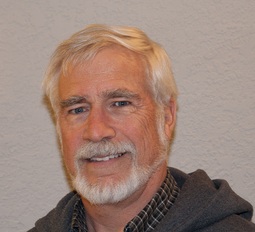Today we share some more valuable career tips from experienced IT pro Steve Havert. Starting his technology career in Silicon Valley while studying Psychology, Steves career has been long and eventful. Here he passes on some of his wisdom - we hope this can make a difference in someone else's career.
One of the nice things about being a “seasoned IT veteran” is being in a position to mentor younger folks who are early in their career. Nothing gives an old pro more pleasure than being asked for advice. I’d like to offer a few words of advice to those just starting a career in IT. There may be a nugget or two of wisdom that the more experienced person would find valuable, also. In my mind there are five key behaviors that will contribute significantly to one’s success in IT.
1 - Improve Communication and Interpersonal Skills
There was a time when IT pros were considered wizards, almost god-like. We sat in our air-conditioned server rooms doing things that no one else in the company understood. We didn’t have to communicate much, just keep the system(s) working. Unfortunately, or fortunately, depending on your point of view, that is no longer the case. Computer terms are part of our lexicon. Almost everyone has more computing power in their pocket than we did in an entire room of servers. An IT pro needs to be able to communicate his or her ideas, plans, designs, etc., clearly and effectively both verbally and in writing. Plus, we can no longer get away with looking and acting like a cave troll because we know stuff that no one else does. We have to work with people, get them to like us, persuade them.
I recommend devoting significant time and energy towards honing these skills. Early in my career I joined Toastmasters to help me conquer my dread of speaking to groups of people. I attended seminars and workshops that focused on tools and techniques for communicating more effectively, understanding communication and personality styles. Technical skills are important but communication and interpersonal skills will take you places that technical skills never can.
2 - Think strategically
A career is a process. We may think of it as a series of jobs but that’s like saying a war is just a series of battles. Those battles aren’t happenstance; they are carefully planned tactical maneuvers dictated by an overall strategy. Likewise, we should think of our IT career in strategic and tactical terms. Our strategy should be based on our goals. Where do we want to be in 5, 10, 20 years? Goals don’t need to be too specific but one should have a general idea of where they want to be down the road. Our strategy helps us decide what opportunities to pursue, what kind of choices we should be making. For example, job offers (whether for temporary contract work or permanent positions) should be evaluated in terms of whether they move our strategy forward. Will I learn new skills? Will I be challenged with experiences, technologies and/or people that will help me grow and become more valuable? These should carry much more weight than salaries and benefits.
3 - Grow your network of contacts
Since my career was mostly pre-LinkedIn, I had to grow my network by attending industry conferences, seminars, meetings, etc. While I think LinkedIn and the other social networking sites are wonderful, there is still plenty of room for the personal touch. Get out of the office and attend vendor demonstrations, local user group meetings, seminars. The old adage, “It’s not what you know, it’s who you know” is as true today as it ever was.
4 - Learn and grow
It is a cliché to say that the computer we buy today is obsolete by the time we get it home. Technology is changing rapidly and changing our world rapidly. The job you end up in ten years from now may not even exist today. I think it’s important to be constantly learning and looking for growth opportunities. It is easy to become pegged with a label – “developer”, “web designer”, “network admin”, etc. Often we begin to think of ourselves in terms of the label and we cease to consider opportunities that would lead us in a different direction, we limit ourselves. Because the IT world is morphing and expanding so quickly, the opportunities will be limitless for those with the right skills. Explore technologies that interest you whether they are directly related to your current job or not. You never know when some piece of knowledge you learned by attending some off-the-wall technology seminar will be the ticket to a career move you never anticipated.
5 - Follow your bliss
I’ve always been a firm believer in doing what you love. I’ve tried to focus on moving my career along by doing what interested me and what I enjoyed. This advice isn’t limited to just your IT career. Take the time to pursue interests outside of your job. They will keep you sane when your work environment becomes crazy (which will happen more than once in your career, trust me). Besides, one of your outside interests could be become your career one day. I’ve always enjoyed photography. Now that I’m semi-retired, I have devoted much of my time, energy and retirement savings to learning to be a better photographer.
When I started my IT career I had no idea what I wanted to be when I grew up. I was offered a position as a systems operator while working for a small company near Silicon Valley. It sounded interesting. I was still going to college and was working towards my degree in Psychology. I thought I wanted to be a therapist. After only a few weeks on the job, I realized that I had found something I was really good at and enjoyed. I did, eventually, get my degree in Psychology, but I had already found a home in IT. I have never regretted saying “yes” to that first opportunity.
If you have any questions for Steve please get in touch at info@titanhq.com

About Steve Havert - Steve Havert is an independent IT professional based in Seattle, WA. He has spent his thirty-six year IT career working in every facet of IT for large corporations as well as his own IT consulting business in Orange County, CA. He continues to work as a freelance consultant while pursuing a second career in photography.
Talk to our Team today



